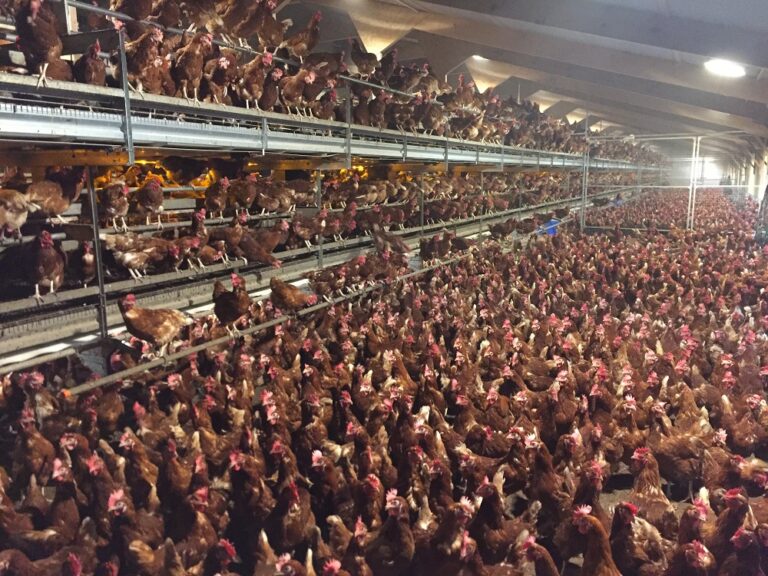By Michael Clark, veterinary adviser, poultry, Boehringer Ingelheim
We’ve all heard of the term immunosuppression, but what does it really mean, why does it matter and how is it related to health and productivity? Immunosuppression is a temporary or permanent dysfunction of the immune response resulting from insults to the immune system leading to increased susceptibility to disease. Essentially, something bad stops the immune system doing its job for a period of time. This means that the bird is more likely to get an infectious disease and is less able to perform to its genetic potential.
A disease situation arises when a bird shows clinical signs of illness and is unable to grow or produce eggs maximally. Infectious disease is caused by pathogens e.g., viruses or bacteria. Any infectious agent that causes clinical signs has an immunosuppressive effect on a bird. So, a bird scouring because of coccidiosis or a bird snicking with infectious bronchitis, will be immunosuppressed as soon as it shows clinical signs.
When a pathogen invades a host bird, the bird’s immune response is activated to attempt to repel the invader. There is, however, a cost to this and it is a physiological one. Resources that should be used for growth and productivity are being diverted to respond to a disease challenge. Things become even more complicated and costly if the bird is already being stressed. Stress occurs when the body is exposed to a negative demand e.g., being chilled or poor ventilation. Stress increases the production of corticosteroids, which further suppress the competence of the immune system to respond appropriately. Even worse, stresses are cumulative and if they aggregate above the bird’s coping mechanism, there is an impact on performance and ability to mount an effective immune response. High levels of stress mean a poorer response with the paradox that mounting an immune response is stressful.
This means a balance needs to be sought, birds need to be immunocompetent so that the immune response adequately controls disease and resilient to be able to perform whilst preventing clinical signs of disease. Maximal resilience is achieved when the minimal immune response is used to only target microorganisms that are a threat, thereby maintaining freedom from clinical signs, whilst simultaneously being as close as possible to maximal genetic potential. It can never be perfect as the cost of mounting an immune response can be a loss of productivity. Poultry farming needs collectively good immune systems across a flock and a producer needs to be able to ascertain whether a flock is diseased or healthy. Immunosuppression as a result of stress, a non-specific disease challenge or a disease of the immune system, will reduce both individual immunity and flock immunity, so uniformity is lost. When a flock achieves a high level of uniformity then high levels of productivity (and the possibility of high profitability) follow because disease is under control. The lower a flock’s current stress level is from its stress threshold for disease is the biggest determinant of flock uniformity and thus health.
In the absence of prior exposure, immune recognition and activation is delayed and the extent of the primary immune response is frequently inadequate to prevent disease, and is nutritionally and physiologically costly. This is countered by vaccinating flocks. Vaccination presents a weakened or killed version of a pathogen to the immune system, so the immune system is primed should it come across this pathogen in future, thereby providing immune protection. There are, however, specific immunosuppressive viruses. For example, in the early stages of a Marek’s disease, infected birds show no detectable clinical signs associated with the infection. However, organs integral to immunity (the thymus and Bursa of Fabricius) are damaged impacting the bird’s ability fight other infections. Infectious bursal disease (IBD) [Gumboro disease] is another, causing clinical signs in young chickens with those that appear to make a recovery having long lasting damage to the Bursa of Fabricius. So, like Marek’s disease, IBD infected birds may look normal but have a compromised ability to produce antibodies against other diseases.
To control infectious diseases, we have three broad strategies:
Bioexclusion…keep the disease out of the flock
Surveillance…know what the disease is doing in the poultry sector and whether it is present on your farm
Disease containment…if the disease is a problem try to minimise its impact and spread.
Vaccination is an important part of disease containment, although as with disease causing pathogens, there is an energy cost of the immune system responding to a vaccine. Considering this, unnecessary vaccination is both a financial cost and a performance cost, which is why it is important to understand what you are vaccinating against and the impact it could have on the birds. Inadequate vaccination means that a flock is not resilient enough to fight a field challenge. Whilst vaccinating with a hot vaccine might have a detrimental effect on the immediate health and welfare of the bird. Perhaps it’s time to review your vaccine schedule; maybe two intermediate IBD vaccines rather than one hot IBD vaccine in your broiler vaccine schedule will give maximal resilience to your birds at the minimal performance cost.


